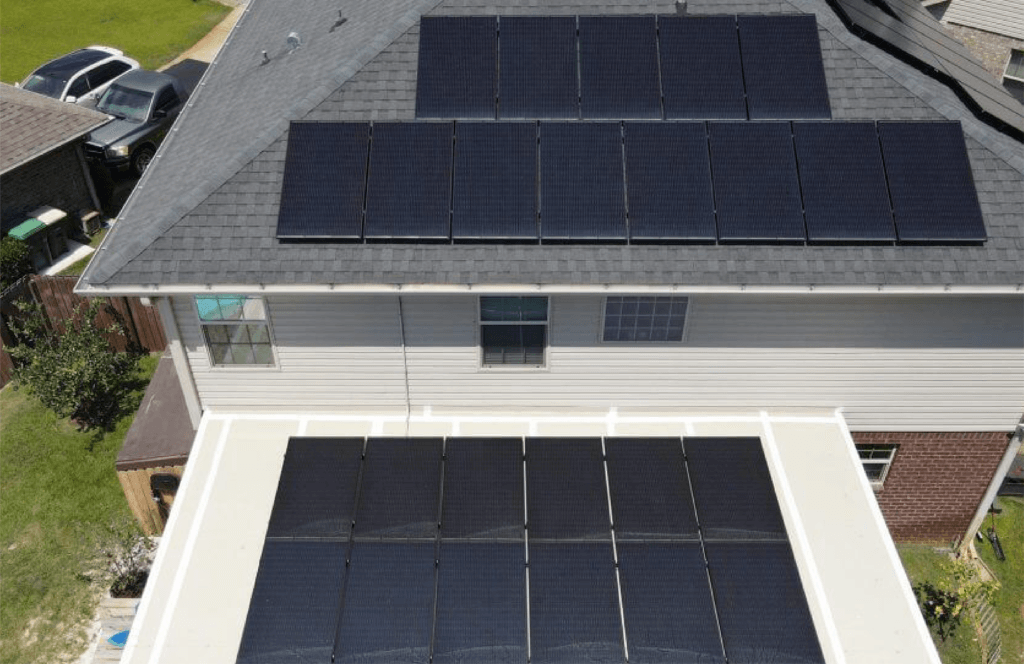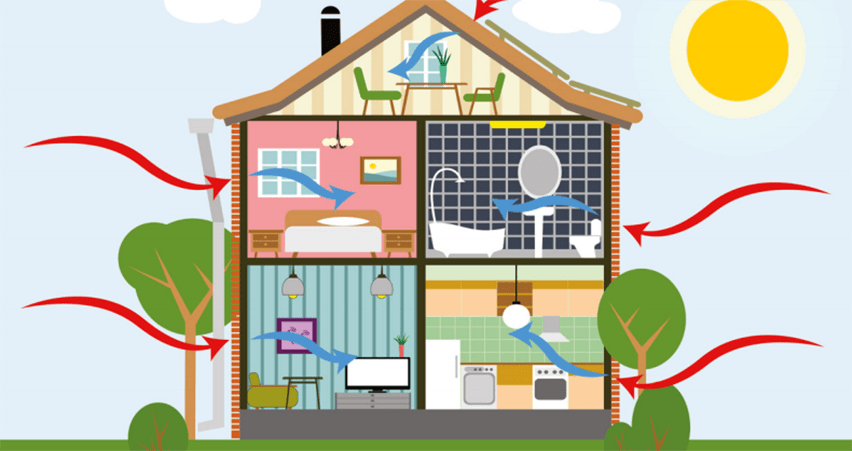Case Study: A Real-Life Experience with Residential Solar Panels

Solar energy has become a buzzword in the sustainability movement and for a good reason. More homeowners are opting for solar panel systems to reduce energy bills, contribute to environmental protection, and gain energy independence. However, the real-life experience of transitioning to solar energy is something that many potential customers are curious about.
At Solares Energies, we are committed to supplying, installing, and maintaining top-quality solar panel systems. This case study provides an in-depth look at the experience of one of our residential clients, the Smith family, who recently went through the process of adopting solar energy in their home.
The Smith Family’s Challenge
Living in a sun-rich region, the Smith family was spending a considerable amount on energy bills, especially during the summer months. Concerned about their carbon footprint and motivated to find a sustainable solution, they began exploring the possibility of solar panels.
Initial Consultation and Customized Solution
The journey began with a consultation with the Solares Energies team. Our experts conducted a thorough assessment of the Smith family’s energy consumption, roof structure, local regulations, and budget constraints. The goal was to design a system that would cater to their specific needs while ensuring maximum efficiency.
After evaluating various options, we proposed a 5 kW solar panel system with battery storage. The storage option would allow the family to utilize solar energy during the evenings and provide a backup during any power outages.
System Installation Process
One of the essential aspects of solar panel installation is the attention to detail during the setup process. Our team ensured that the installation was compliant with all local building codes and regulations. We also focused on aesthetics, making sure that the panels were placed in a manner that would blend with the home’s architecture.
If you’re looking for the best Solar Panels Marbella has to offer, then look no further than Solares Energies. The entire installation process was completed within a week, with minimal disruption to the Smith family’s daily routine.
Performance Monitoring and Maintenance
Post-installation, Solares Energies initiated a comprehensive monitoring system to track the performance of the solar panels. Our monitoring software provides real-time data on energy production and consumption, allowing the Smiths to understand their energy usage patterns.
Additionally, our maintenance package ensures that the system is always in optimal condition. Regular inspections, cleaning, and necessary adjustments are part of our ongoing commitment to our clients.
The Results: Energy Savings and Environmental Impact
The Smith family’s investment in solar energy quickly paid off. Within the first month, they noticed a 60% reduction in their energy bill. Not only were they saving money, but they were also contributing to the reduction of CO2 emissions, aligning with their goal of living more sustainably.
The battery storage addition also proved to be valuable during a storm-related power outage, providing an uninterrupted energy supply.
The Client’s Perspective
When asked about their experience with Solares Energies and the transition to solar energy, Mrs Smith stated, “We were initially hesitant about the change, but the professionalism, expertise, and support from Solares Energies made the process seamless. The savings are significant, and knowing that we’re contributing positively to the environment feels great.”
Lessons Learned and Key Takeaways
The Smith family’s experience highlights several essential aspects of adopting solar energy:
- Personalized Solutions: Every home and family’s energy needs are unique. A customized approach ensures that the solar system aligns with individual requirements.
- Professional Installation: Proper installation is crucial for optimal performance. Compliance with regulations, aesthetics, and efficiency must all be considered.
- Ongoing Support: Monitoring and maintenance are vital for the long-term success of the solar panel system. Quality support can enhance performance and extend the life of the system.
- Environmental Responsibility: Beyond financial savings, solar energy contributes to a cleaner, greener future. This case shows that individual actions can make a tangible difference.
How do solar panels work?
Solar panels, or photovoltaic (PV) panels, work by converting sunlight into electricity. This conversion happens at the atomic level. Solar panels are made of many solar cells, and these cells are often made from silicon, a semiconductor material. When sunlight (photons) hits the solar cells, it excites the electrons in the atoms of the silicon.
This excitement causes the electrons to move, creating an electric current. This current is captured by conductive metal plates on either side of the cell, and then transferred to wires, leading to the electrical load (such as household appliances). A device called an inverter then converts this direct current (DC) into alternating current (AC), which is the standard used by most household electrical systems.
The overall efficiency of this conversion process can vary based on the quality of the panels, the angle of sunlight, and other environmental factors. Innovations in solar technology continue to improve this efficiency, making solar energy an increasingly viable option for various applications.
Where should I place my solar panels?
The placement of solar panels is a crucial factor in their efficiency and effectiveness in generating energy. Solar panels should be placed where they can receive the maximum amount of sunlight throughout the day. Here are some key considerations:
1. Orientation: In the Northern Hemisphere, solar panels should generally face south to capture the most sunlight. In the Southern Hemisphere, a north-facing orientation is usually best.
2. Tilt Angle: The tilt angle of the panels should be considered to match the latitude of the location. This angle helps the panels to receive the sunlight perpendicularly, maximizing absorption.
3. Shade Consideration: Avoid placing solar panels in areas where shadows from trees, buildings, or other obstacles might fall on the panels, especially during peak sunlight hours. Shadows can significantly reduce the efficiency of solar panels.
4. Structural Support: The roof or ground structure where the panels are mounted should be sturdy enough to support the weight of the panels. Additionally, roof-mounted panels should not cause leaks or other structural issues.
5. Compliance with Regulations: Local zoning, permitting, and homeowners’ association regulations may have specific requirements or restrictions on where and how solar panels can be installed.
A professional solar installer like Solares Energies will perform a site assessment and consider all these factors to determine the optimal placement for solar panels in your specific situation.
What are the advantages and Disadvantages of Solar Panels?
Advantages:
- Renewable Energy Source: Solar panels harness sunlight, a virtually inexhaustible energy source, reducing reliance on fossil fuels.
- Environmental Benefits: By generating electricity without emitting greenhouse gases, solar panels help mitigate climate change and reduce air pollution.
- Energy Independence: Solar panel systems can provide energy independence, especially when paired with battery storage, reducing dependence on the grid.
- Cost Savings: While the upfront cost can be substantial, solar panels often lead to significant long-term savings on energy bills.
- Potential for Government Incentives: Many governments offer grants, tax incentives, or other financial benefits to encourage solar panel adoption.
Disadvantages:
- High Upfront Costs: The initial installation cost, including panels, inverter, and professional installation, can be high, though this is often mitigated by long-term savings and available incentives.
- Weather Dependent: The efficiency of solar panels can be affected by weather conditions such as cloud cover, though this can be somewhat offset with proper placement and design.
- Space Requirements: Solar panel systems require a significant amount of space, which might not be available or suitable for all properties.
- Maintenance Needs: While generally low-maintenance, solar panels do require regular cleaning and occasional inspections to maintain optimal performance.
The decision to install solar panels should be made after careful consideration of these factors, and a consultation with a professional solar energy provider can help you understand how these advantages and disadvantages apply to your specific situation.
Conclusion: A Success Story with Solar Energy
The Smith family’s journey with Solares Energies illustrates the potential benefits and practical considerations involved in transitioning to solar energy. It serves as a testament to the positive impact that solar energy can have on both the wallet and the world.
For anyone considering this path, this real-life experience offers valuable insights and encouragement. Solares Energies stands ready to provide the same level of excellence, support, and sustainable solutions to all who are ready to embrace the future of energy. Whether you are looking for energy savings, environmental stewardship, or energy independence, solar energy offers an attainable and rewarding path. Feel free to reach out to us to explore how solar panels could transform your home and life.






